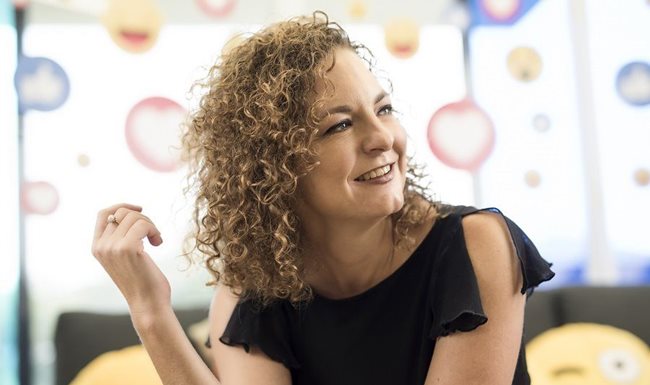Tapping into creators is an extremely valuable tool for businesses, but you need to know how to authentically work together to reach the right people. Also dubbed the business of influence, the creator economy can be traced back to as early as the late 2000s where blogging gave rise to an era of user-generated content.

Elizma Nolte, Meta’s head of marketing for sub-Saharan Africa
Today, the creator economy is more diversified, with an estimated 25 million social media users in South Africa. This fact alone is reason enough to explore why creators are important and understand how businesses can work with them to tap into this multibillion-dollar industry.
The variety of content on social media platforms coupled with the estimated 50 million influencers, bloggers, social media personalities, comedians, activists, podcasters, artists, musicians, and athletes on these platforms - people do not come to social media just to shop. As a recent South African consumer survey shows, they come to be entertained and inspired.
People are on a journey of discovery. And as they go along this journey, they come across product and service recommendations from trusted and influential members of their communities, who act as guides.
But why are we drawn to creators in the first place?
The allure of creators
The biggest misconception is that people are attracted to a creator’s fame when it's their creative originality that is key. From dancers to make-up artists, creators have a unique personality or craft that entertains and inspires us, and - most importantly - offer us an original perspective.
But why is this useful for businesses? Because people trust creators.
Around 63% of 18-34-year-olds say that they trust what a creator says about a brand more than they trust what a brand says about itself.
Natalie Mulvaney 22 Nov 2021
In this way, creators act as guides and a powerful word-of-mouth discovery tool, helping us to decide which products or brands to consider and purchase. Have you bought something over the past 18 months because a creator showed you something you liked?
For example, a news outlet reported on Kay Yarms, a local trusted beauty content creator and influencer, who shared a personal success story of a beauty product she trialled in order to get rid of her stretch mark. Soon thereafter, social media was filled with images of her followers having purchased several bottles of the lotion.
It’s not a one-off. In fact, 82% of people discover products and brands across Meta's technologies.
Businesses and creators can work together
So, we understand why people interact with creators, but how can businesses authentically tap into this as a useful tool for marketing?
The key to this is storytelling. Content, created by a brand or otherwise, needs to earn its place in a social media feed. It needs to be arresting, engaging, and entertaining. Businesses need to find creators that will effectively harness the power of storytelling for their brand.
For example, 82% of people would try, purchase or recommend a brand when the content is ‘inspiring’. It’s not enough to rely on a creator’s fame, established trust, or highly engaged audience. It’s about how the creator delivers information. This creative content is crucial to brand success.
In a recent study of over 160 creator-driven product sales campaigns, we found a correlation between ads in which the creator used some form of ‘demotainment’ to tell the product story in an entertaining way to convert customers.
When businesses work with creators on a piece of paid content, it has a different job to do than organic content. Paid social content can be shared with spend behind it to help it reach a much wider audience beyond the creator’s own network. Because this content is reaching new people, creativity is as important as the creator delivering it. This is why it’s necessary to focus on the creator’s craft - a great post is 67% more predictive of positive brand sentiment than a likeable creator.
This has a knock-on effect on how businesses work with creators - they need to make space for creators to do what they do well. If a brand tries to make them an extension of their brand campaign, the collaboration will lose its superpower: authenticity. A creator’s power lies in the fact that their voice and their opinion is authentic to them - it’s not a copy of something else.
Businesses can work with creators in this way across the purchase funnel. Creator effectiveness isn’t limited to just one moment in the purchase funnel. When used alongside other marketing methods, creators can help to build brand awareness, favorability, inspire purchase intent, and drive conversions.
How do you find a creator?
Creator marketing is a mix of art and science - but mostly art. So, there’s no easy formula for finding the right creator, but there are a few different ways to think about finding the right fit for your business that work across three main categories.
‘Category fit’ is the most common. For example, if you’re a beauty brand, you might want to partner with a beauty creator, or if you’re a gaming brand, you’ll partner with a gaming creator.
This kind of partnership works well for products that benefit from the subject matter expertise that creators can provide, as they can show how a product works or talk about it in-depth to make a sale.
If you’re happy to experiment a little further from home, think about a ‘lifestyle fit', starting with your product and the kind of people who might use it. For instance, if you're a photo-printing service, a creator with expertise in the interior design space could be the ticket. This level of association will still make it relevant to an audience that's interested in your brand.
Finally, there’s the ‘craft fit’. This approach often creates the most unexpected and rewarding creative. Imagine being a beer brand collaborating with a graffiti artist, or a footwear brand partnering with drag queens. Craft-driven collaborations have the ability to move your brand in new directions, which is why they’re often great at building a brand personality -even while driving sales.
The world of influencers is ever-expanding. In fact, it is predicted to grow by another $4.1bn this year alone. Be part of this engaging and creative movement and explore the new frontiers of influence.
Now is the time to find creators that will shake up your brand and help new audiences discover your products.
![Today, Halo and Demographica announce a new specialist agency, Second Rodeo]], headed up by Mike Stopforth (left). Dean Oelschig, managing partner and founder of Halo (right) says they will work as a group but ultimately, each agency will be an individual specialist](https://biz-file.com/c/2505/772543-300x156.jpg?2)





































![Today, Halo and Demographica announce a new specialist agency, Second Rodeo]], headed up by Mike Stopforth (left). Dean Oelschig, managing partner and founder of Halo (right) says they will work as a group but ultimately, each agency will be an individual specialist](https://biz-file.com/c/2505/772543-64x64.jpg?2)






